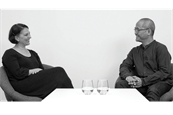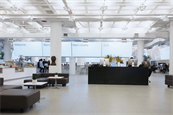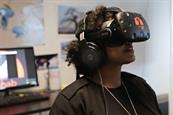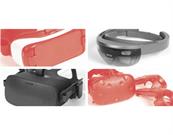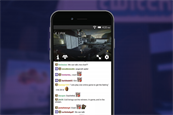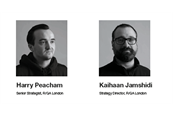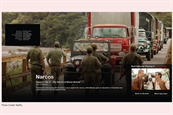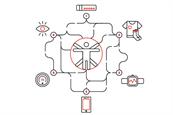Lachlan Williams, strategy director, R/GA London
 We all know that your people are the company. But when it comes down to it, a lot of businesses don’t really put their people first. Operational models tend to focus more on efficient ways of labelling and grouping people rather than really focusing on their needs and motivations.
We all know that your people are the company. But when it comes down to it, a lot of businesses don’t really put their people first. Operational models tend to focus more on efficient ways of labelling and grouping people rather than really focusing on their needs and motivations.
Businesses know that they need to put people at the centre of their communications and experiences. So why don’t they do the same for their own people?
More and more we are understanding that organisational culture is a critical part of every brand, but until now it’s been fundamentally invisible (just look at Airbnb or Uber for very different reasons). With new technologies comes greater control and transparency for customers and employees. The power has shifted, and it’s a huge opportunity – but also a significant threat, if not approached correctly.
Boardrooms are realising that talent, rather than capital, is their scarce resource and are rushing to find ways to be competitive. One of our first clients currently exploring this space is Siemens, who have made this a cornerstone of their business strategy, and we’ve been lucky enough to go on that journey with them.
Over the last 12 months, we’ve been experimenting with familiar humancentric approaches, tools and frameworks; user journeys, data-powered messaging platforms, AI/bots and editorial strategy in the fairly unfamiliar but deeply fascinating area of Employer Brand and employee experience.
In this latest issue of FutureVision, we’ll be exploring the future of work, employee experience and modern brand building. We’re taking a look at what happens when we redesign the employee experience to put people at its centre.
We’re developing an offer that gives us the ability to go to market and show that we can work on the complete journey; from business design and internal culture, to talent strategy and customer marketing in a total and complete loop. This is the future of our industry.
Claire Beale, global editor-in-chief, ±±ľ©Čüłµpk10
 If you’re reading this at a desk (surrounded by the comfy detritus of papers, books, plants that demark your professional space) in an office (an office you’ve sat in every day this week, every week this year), then I defy you to not be thrilled, frustrated, envious and a little scared by the following work.
If you’re reading this at a desk (surrounded by the comfy detritus of papers, books, plants that demark your professional space) in an office (an office you’ve sat in every day this week, every week this year), then I defy you to not be thrilled, frustrated, envious and a little scared by the following work.
R/GA’s latest FutureVision report outlines an exciting but challenging shift in how, where and even why we will soon be working.
The old notions of 9-5 clocking in and out, careers for life, and employer loyalty are being eroded, replaced by more agile, flexible and layered ways of earning a living.
At the same time, employees are increasingly unwilling to compromise principles for profit, prepared to earn less in return for more enriching and socially responsible work.
And employers who don’t share such values are unlikely to attract the best human talent capable of working alongside the robots that are taking on more workplace tasks.
It’s a fascinating picture that redefines both the value of work and the value of workers. This new professional landscape has some fundamental social and economic implications. There are clear challenges laid out in this issue that will force a wholesale rethink of principles that have defined work for decades, if not centuries.
Exciting, definitely, but whether the opportunities and the costs for us as humans can be brought into balance is as yet uncertain.


